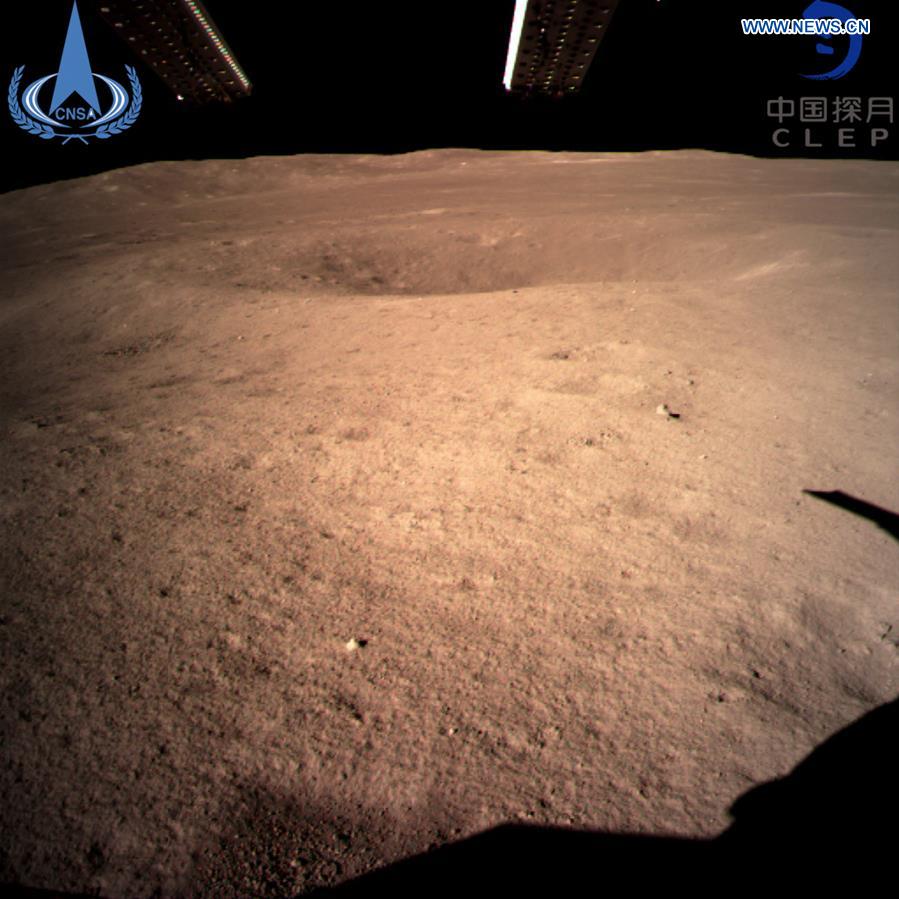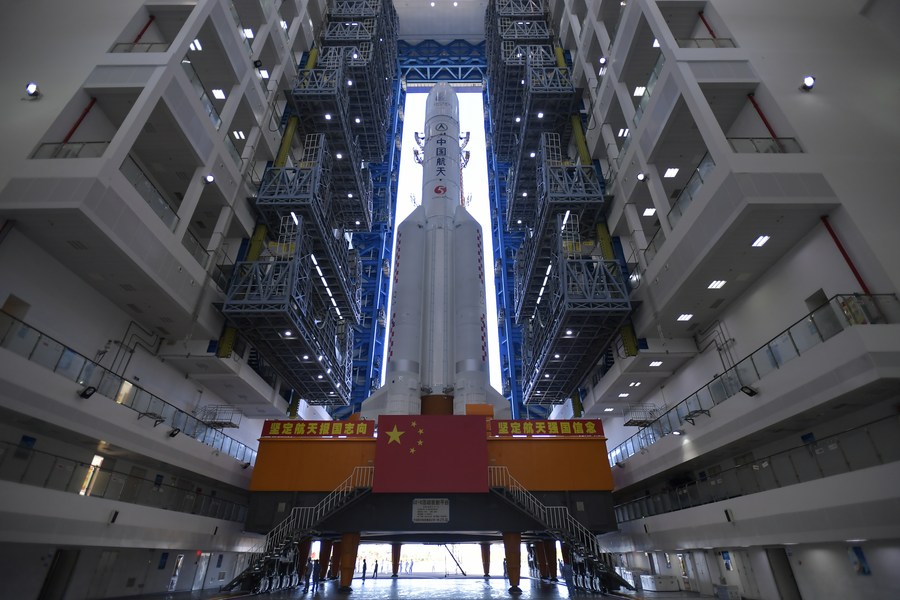Moon Day: Time to look up
- By Eugene Clark
 0 Comment(s)
0 Comment(s) Print
Print E-mail China.org.cn, July 23, 2020
E-mail China.org.cn, July 23, 2020

While the world is presently suffering through a terrible year of disease, economic woes, increased tensions and other issues, it is helpful to take a break and look up to the stars and see the great things that can be achieved when we commit ourselves to a goal and work together to make it happen. This week, many countries around the world are celebrating Moon Day. The day celebrates the historic moon landing that occurred on July 20, 1969.
Great achievements begin with a big and bold vision. The vision engenders enthusiasm and support from many who must work together to achieve the goal. As Ralph Waldo Emerson wrote: "Nothing great was ever achieved without enthusiasm."
Great achievements never happen, and great talent goes unrealized unless it is accompanied by prodigious hard work and monumental effort. Sadly, as groups and individuals, we too often seek instant gratification and are unwilling to put in the time, work and commitment to achieve a lasting legacy and make the world a better place for those who will follow us.
We live in the Information Age and know that technology will and must play a significant role in meeting present and future challenges. Our quest to explore outer space has led to the advancement of many new technologies, the application of which has also transformed life here on earth. Just a few of these include new advances in lighting, space shoes and other equipment to enable us to function in all conditions, as well as foil blankets, advanced water purification systems, improvements in communications, home insulation, ear thermometers, wireless headsets, memory foam, freeze-dried food, artificial limbs, portable computers, camera phones, and more.
While the U.S. became the first to land a man on the moon, today, more countries are stepping up efforts to further advance our exploration into space. This week, for example, the United Arab Emirates partnered with Japan on a launch to Mars as part of its 50th anniversary celebrations. This is the first such mission by an Arab country. China's Tianwen-1 also has a Mars mission lined up this summer.

Not only are more countries participating in space exploration, but space exploration is no longer an event exclusively for governments. The private sector, too, has been very active in partnering with government, for example, by developing new and re-usable rockets, conducting research, etc.
The world has moved beyond space exploration to look at many other possibilities and opportunities. Just a few of these include space manufacturing, space-based solar power development; mining (e.g., resource extraction from asteroids) and transport with heavy lifting rockets, creation of a space station on the moon and a colony on Mars; deep space exploration, lunar bases, new forms of construction involving automated assembly; new applications of robotics, wireless transmission of power; new types of fuels to reduce travel time and increase distances; and space tourism. It is also important to note that new space applications will require new laws to chart peaceful paths and provide regulatory guidance so that we have the right mix of incentives and responsible development to achieve our goals.
Space is no longer something for scientists and politicians. It has captured the attention and interest of the wider population. I was very impressed when, in 2013, Wang Yaping demonstrated principles of weightlessness and took questions live from among hundreds of schoolchildren in a Beijing auditorium during a lesson from aboard the Tiangong 1 space station while her fellow crew members, Nie Haisheng and Zhang Xiaoguang, answered questions about living and working in space.
While space exploration is exciting, it is also humbling. It makes us appreciate the fragility of our small blue planet in a large, dark and quiet universe. The possibilities of space are endless. I genuinely hope that we will have the leadership, courage, talent, commitment, and humility required for our future success.
Eugene Clark is a columnist with China.org.cn. For more information please visit:
http://www.china.org.cn/opinion/eugeneclark.htm
Opinion articles reflect the views of their authors only, not necessarily those of China.org.cn.
If you would like to contribute, please contact us at opinion@china.org.cn.






Go to Forum >>0 Comment(s)